
The Heartbeat of Wroclaw: Srodmiescie
Srodmiescie, the central district of Wroclaw, is a vibrant blend of history, culture, and modernity. As you wander through its cobblestone streets, you will be greeted by the stunning architecture that tells the story of the city's rich past. From Gothic cathedrals to Baroque palaces, every corner of Srodmiescie offers a glimpse into Wroclaw's architectural heritage. At the heart of Srodmiescie lies the Market Square (Rynek), one of the largest medieval squares in Europe. This bustling hub is filled with charming cafes, restaurants, and shops, making it the perfect place to soak in the local atmosphere. Don't miss the chance to visit the iconic Town Hall, a masterpiece of Gothic architecture that now houses the Wroclaw City Museum. Srodmiescie is also home to the University of Wroclaw, an institution with a history dating back to the 17th century. The university's main building, with its impressive Aula Leopoldina, is a must-see for architecture enthusiasts. Nearby, the picturesque Ostrow Tumski (Cathedral Island) offers a serene escape with its beautiful churches, quiet streets, and the stunning Wroclaw Cathedral. For a touch of modernity, head to the Sky Tower, the tallest building in Wroclaw, offering panoramic views of the city. In contrast, the nearby Szczytnicki Park provides a lush green retreat with the enchanting Japanese Garden and the historic Centennial Hall, a UNESCO World Heritage site.
Local tips in Srodmiescie
- Visit the Market Square early in the morning to avoid the crowds and enjoy a peaceful coffee at one of the cafes.
- Don't miss the evening illumination of Ostrow Tumski; it's a magical sight with the street lamps lit by hand.
- Buy tickets in advance for the Aula Leopoldina to ensure you can explore this architectural gem.
- Take a walk along the Odra River for a scenic and relaxing experience, especially at sunset.
- If you're visiting the Sky Tower, check the weather forecast for clear skies to get the best views.
The Heartbeat of Wroclaw: Srodmiescie
Srodmiescie, the central district of Wroclaw, is a vibrant blend of history, culture, and modernity. As you wander through its cobblestone streets, you will be greeted by the stunning architecture that tells the story of the city's rich past. From Gothic cathedrals to Baroque palaces, every corner of Srodmiescie offers a glimpse into Wroclaw's architectural heritage. At the heart of Srodmiescie lies the Market Square (Rynek), one of the largest medieval squares in Europe. This bustling hub is filled with charming cafes, restaurants, and shops, making it the perfect place to soak in the local atmosphere. Don't miss the chance to visit the iconic Town Hall, a masterpiece of Gothic architecture that now houses the Wroclaw City Museum. Srodmiescie is also home to the University of Wroclaw, an institution with a history dating back to the 17th century. The university's main building, with its impressive Aula Leopoldina, is a must-see for architecture enthusiasts. Nearby, the picturesque Ostrow Tumski (Cathedral Island) offers a serene escape with its beautiful churches, quiet streets, and the stunning Wroclaw Cathedral. For a touch of modernity, head to the Sky Tower, the tallest building in Wroclaw, offering panoramic views of the city. In contrast, the nearby Szczytnicki Park provides a lush green retreat with the enchanting Japanese Garden and the historic Centennial Hall, a UNESCO World Heritage site.
Iconic landmarks you can’t miss
Wrocław Multimedia Fountain
Experience the enchanting Wrocław Multimedia Fountain, where water, light, and music unite to create unforgettable shows in a stunning park setting.
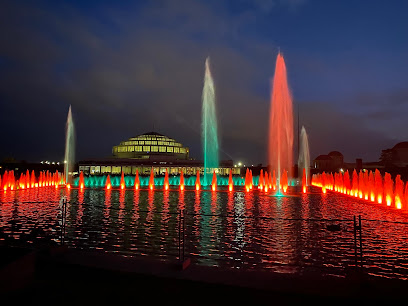
Museum of Bourgeois Art
Explore the opulent heritage of bourgeois society at Wrocław's Museum of Bourgeois Art, where history and culture come alive.
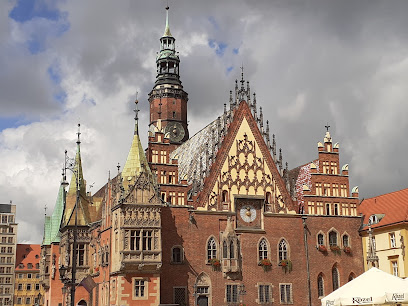
Colorful Backyards of Nadodrze
Explore the artistic haven of the Colorful Backyards of Nadodrze in Wrocław, where vibrant murals and local culture come alive in a unique urban landscape.
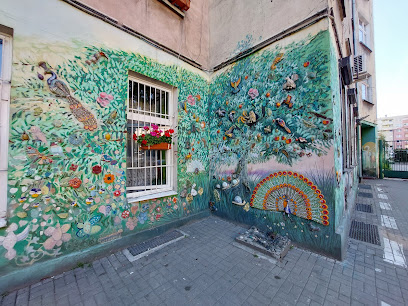
Bastion Ceglarski
Explore the captivating Bastion Ceglarski in Wrocław, a historical landmark that blends rich military history with stunning views and tranquil nature.
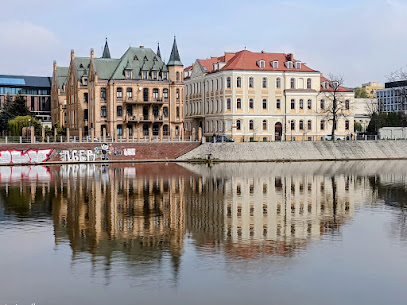
Brama kluskowa
Explore Brama Kluskowa, a historical gateway in Wrocław that showcases stunning Gothic architecture and vibrant local culture.
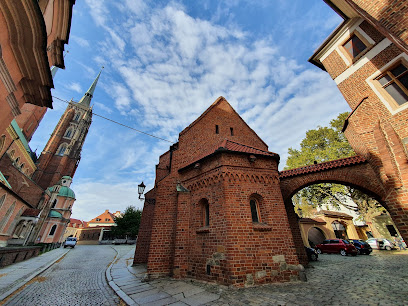
The Lower Silesian Family Of Katyn
Explore the profound history and memorial significance of The Lower Silesian Family Of Katyn, a must-visit landmark in Wrocław.
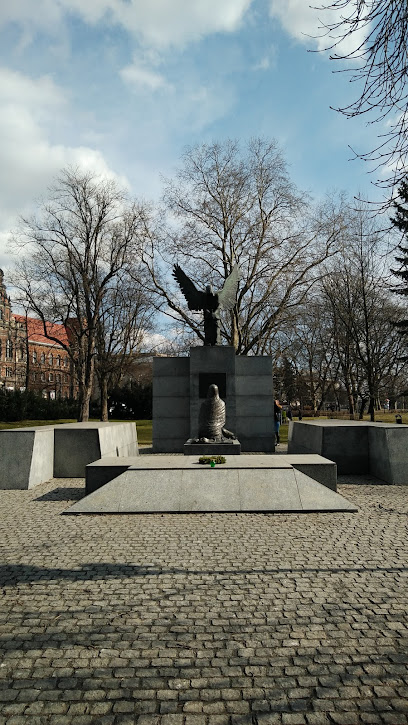
Statue of St. John Nepomunk
Explore Wrocław's Statue of St. John Nepomuk, a captivating blend of art, faith, and history in the heart of the city.
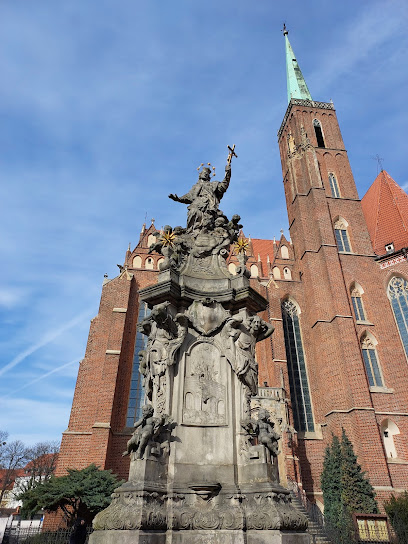
Archbishop's Palace in Wroclaw
Explore the Archbishop's Palace in Wroclaw – a stunning blend of history, architecture, and serene gardens that embodies Polish culture.
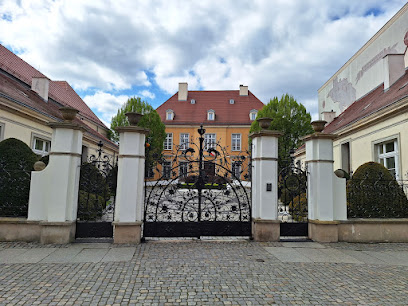
Wroclaw Historical Trail
Discover Wroclaw's fascinating history along the Historical Trail, showcasing stunning landmarks and vibrant culture in every step.
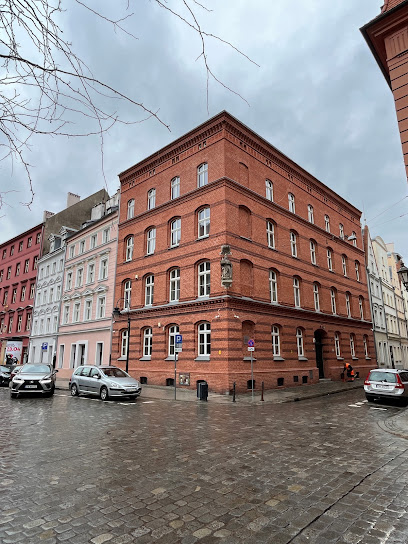
Rzeźby Rycerze Króla Artura Magdaleny Abakanowicz
Experience the magic of Rzeźy Rycerze Króla Artura in Wrocław, a stunning tribute to legendary knights and Polish artistry in a vibrant urban setting.
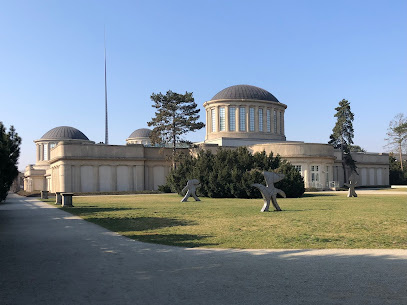
Unmissable attractions to see
ZOO Wrocław
Experience the joy of wildlife at ZOO Wrocław, where education and conservation meet adventure in the heart of Poland.
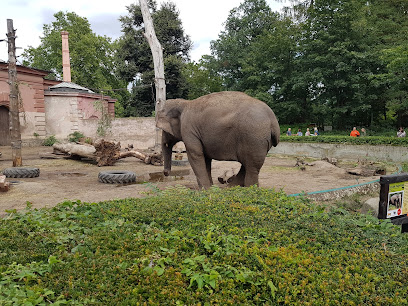
National Museum in Wrocław
Discover the artistic heritage of Poland at the National Museum in Wrocław, a cultural gem filled with historical treasures and captivating exhibitions.
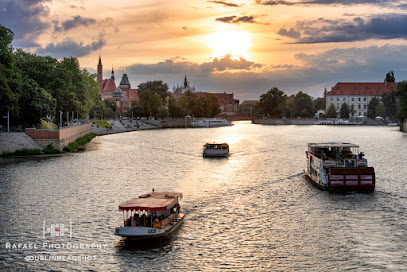
Colorful Backyards of Nadodrze
Discover the artistic charm of the Colorful Backyards of Nadodrze, a vibrant neighborhood in Wrocław showcasing stunning murals and local culture.
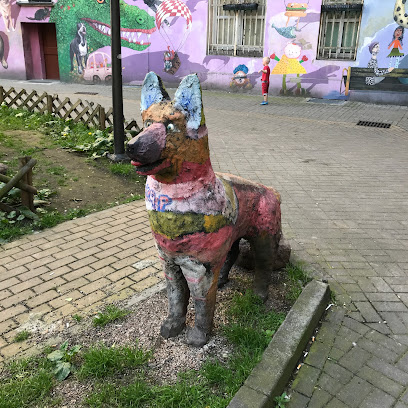
The City Museum of Wroclaw
Explore the rich history and culture of Wroclaw at The City Museum, a captivating destination for tourists and history enthusiasts alike.
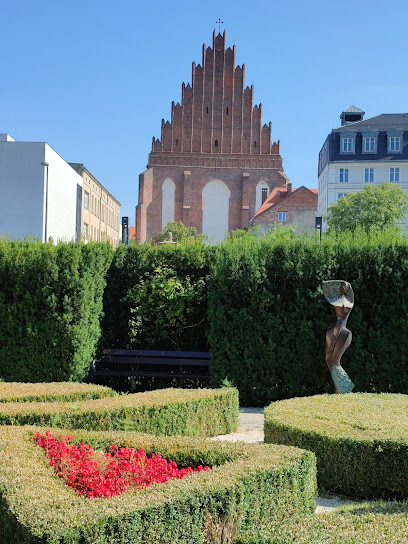
Submarine e-scooter
Discover Wrocław's iconic sites like never before with the exhilarating Submarine e-scooter ride on the scenic Odra River.
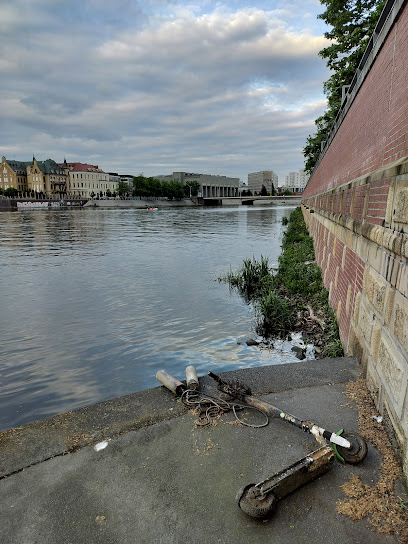
Essential places to dine
Whiskey in the Jar
Experience exquisite steaks and local brews at Whiskey in the Jar, a must-visit culinary destination in Wrocław.
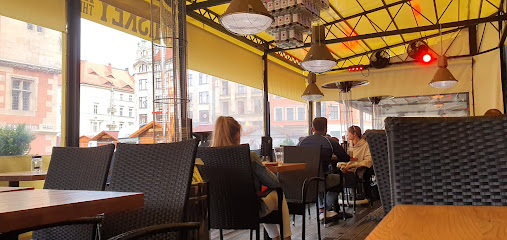
Konspira
Savor authentic Polish flavors at Konspira in Wrocław's historic district; indulge in traditional dishes crafted from local ingredients.
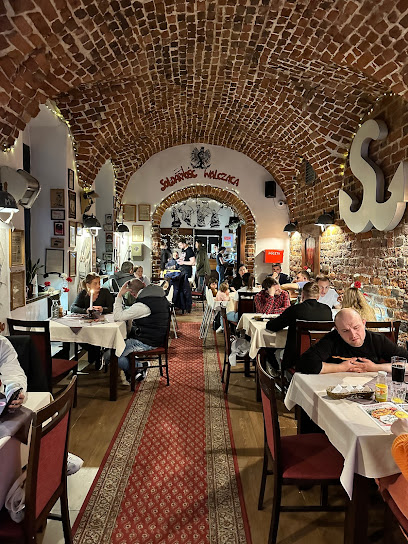
Restauracja Kurna Chata
Discover the flavors of Poland at Restauracja Kurna Chata in Wrocław - where traditional dishes meet warm hospitality.
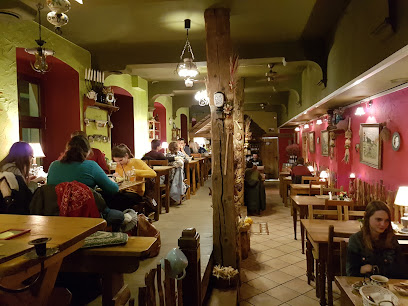
Pod Papugami Restaurant & Cocktail Bar
Discover Pod Papugami: A Modern European Restaurant & Cocktail Bar in Wrocław Offering Exquisite Dishes and Vibrant Atmosphere.
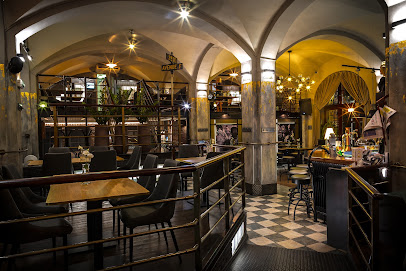
La Maddalena
Experience exquisite fine dining at La Maddalena in Wrocław, where creativity meets culinary excellence in every dish.
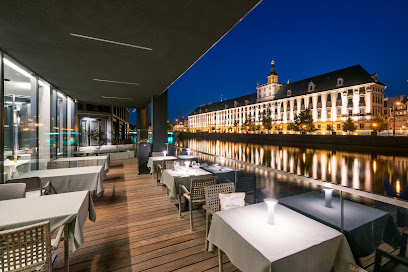
KUŹNIA SMAKU
Experience authentic European and Polish flavors at Kuźnia Smaku in Wrocław - where culinary tradition meets modern dining.
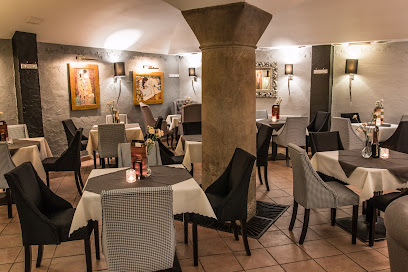
The Cork
Discover culinary excellence at The Cork in Wrocław—where innovative dishes meet exceptional wines in a charming setting.
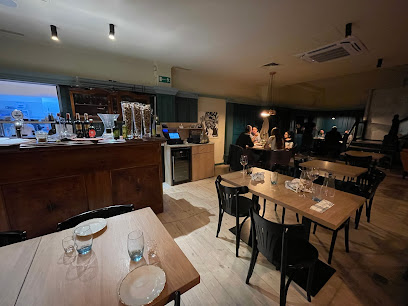
OKWineBar Restauracja
Experience fine dining at OKWineBar in Wrocław – where exquisite cuisine meets stunning views and an extensive wine selection.
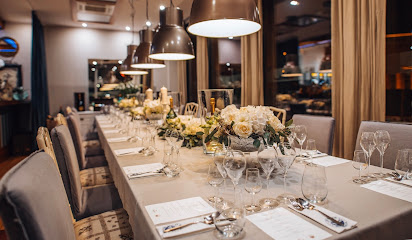
Craft
Discover Craft in Wrocław - where modern Polish cuisine meets local ingredients in an inviting atmosphere.
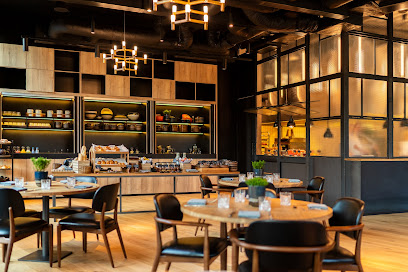
4 Seasons
Discover seasonal Polish cuisine in a cozy setting at 4 Seasons, Wrocław's premier dining destination for food lovers.
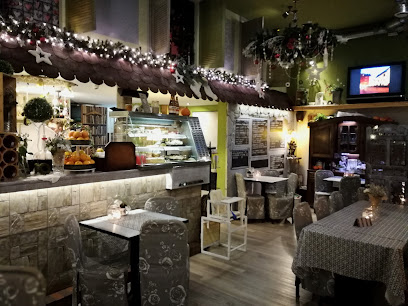
Markets, malls and hidden boutiques
Galeria Dominikańska
Discover Galeria Dominikańska, Wrocław's vibrant shopping mall offering an array of stores, dining options, and cultural experiences.
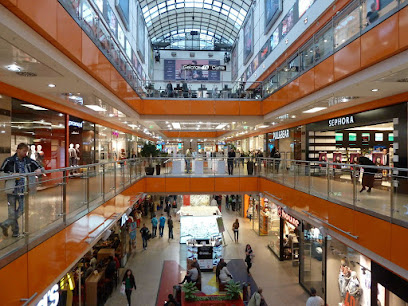
Wroclaw Info Souvenirs Centrum Informacji Turystycznej
Explore Wroclaw's charm at Wroclaw Info Souvenirs, your go-to gift shop and tourist information center for authentic local treasures.
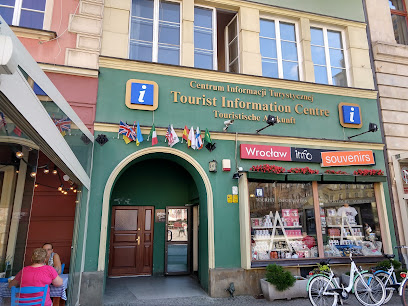
Folkstar
Discover the essence of Polish craftsmanship at Folkstar, Wrocław's premier souvenir and pottery store, nestled in the heart of Galeria Dominikańska.
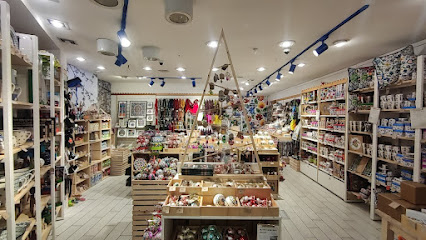
Wyjątkowy Prezent
Explore Wyjątkowy Prezent for unique crafts and souvenirs that capture the essence of Wrocław, perfect for gifting or personal keepsakes.
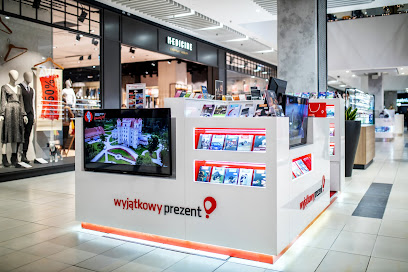
VANS Store Wroclaw Pasaz
Explore the stylish VANS Store in Wroclaw's Pasaż Grunwaldzki, where skate culture meets trendy fashion for an unforgettable shopping experience.

Folkowo-Ludowo
Explore Folkowo-Ludowo, the perfect souvenir store in Wrocław, offering unique Polish crafts and traditional gifts that capture the essence of local culture.
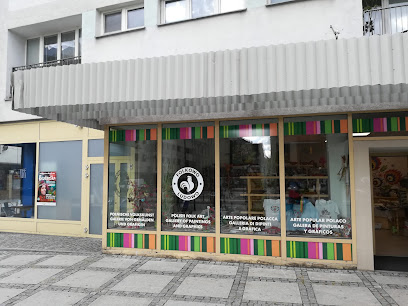
Prezenciarnia
Discover unique gifts and local crafts at Prezenciarnia, a charming gift shop in Wrocław that captures the essence of the city.
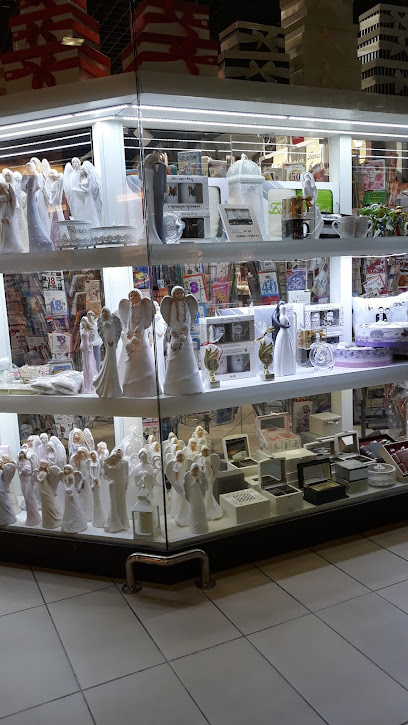
Lolita. Żukowska A.
Explore the elegance of Lolita in Wrocław, where unique fashion accessories await to elevate your style.
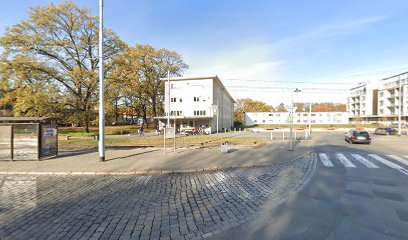
MindArt
Explore MindArt in Wrocław: A creative store offering unique local crafts and art pieces that embody the city's rich cultural spirit.
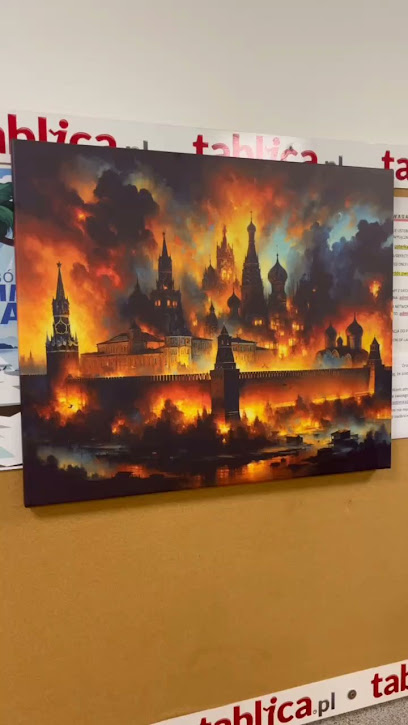
Kiosk
Explore Kiosk in Wrocław for unique gifts and souvenirs that celebrate local artistry and culture.
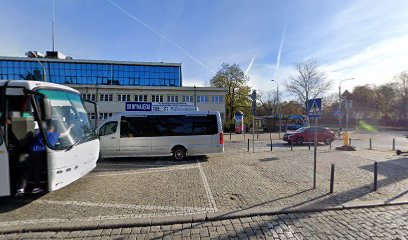
Essential bars & hidden hideouts
Forma Płynna Beach Bar
Discover the vibrant charm of Forma Płynna Beach Bar in Wrocław, where craft brews and scenic riverside views create an unforgettable experience.
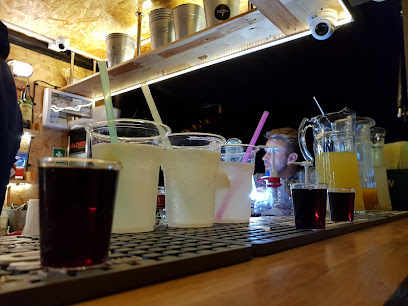
Doctors' Bar
Experience the vibrant atmosphere and delectable cuisine at Doctors' Bar, Wrocław's favorite spot for locals and tourists alike.
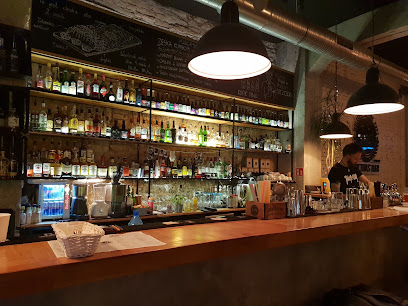
Papa Bar
Discover the vibrant cocktail culture at Papa Bar in Wrocław, offering exquisite drinks and delicious cuisine in a stylish setting.
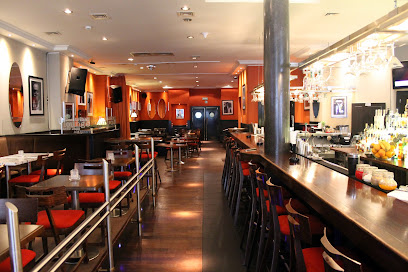
Disparo Shot Bar
Experience Wrocław's nightlife at Disparo Shot Bar, where unique cocktails and vibrant energy come together for an unforgettable evening.
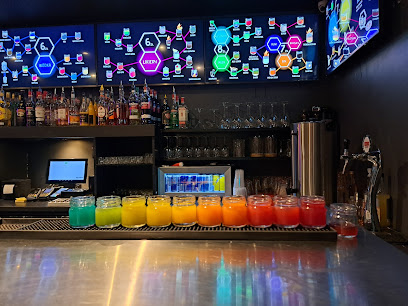
Kawiarnia bar SPEAKEASY
Discover Kawiarnia bar SPEAKEASY in Wrocław, where crafted cocktails meet cozy ambiance in the heart of the city.
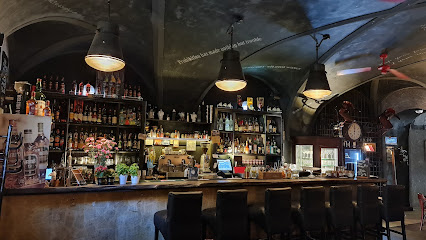
Raj Bar Beach Bar
Experience the vibrant atmosphere of Raj Bar Beach Bar in Wrocław, where delicious food, refreshing drinks, and lively entertainment await you.
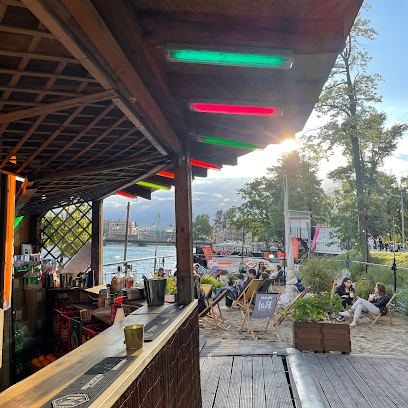
Pijalni Wine Bar
Discover the elegance of Pijalni Wine Bar in Wrocław, where exceptional wines and a cozy atmosphere await wine enthusiasts and casual visitors alike.
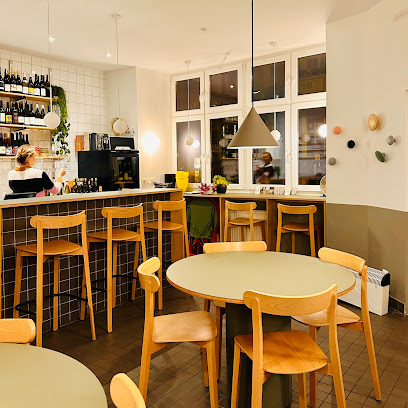
Ponton Pub & Bar
Discover Ponton Pub & Bar, a vibrant destination on Słodowa Island in Wrocław, perfect for enjoying local brews and lively ambiance.
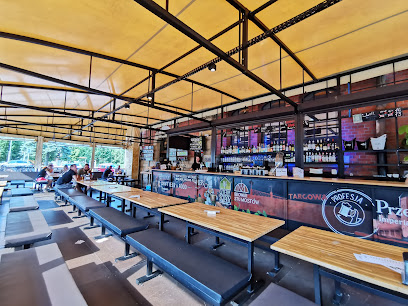
Moravia Wine Bar
Experience the rich flavors and warm ambiance at Moravia Wine Bar, a hidden gem in Wrocław's vibrant Stare Miasto, perfect for wine lovers and casual visitors.
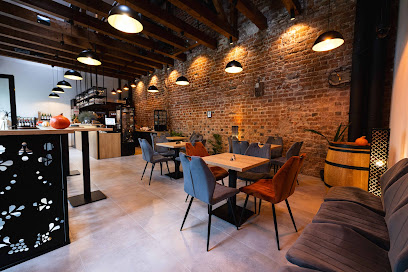
The Bridge Summer Bar
Discover the charm of The Bridge Summer Bar in Wrocław - a perfect riverside retreat for relaxation and good company.
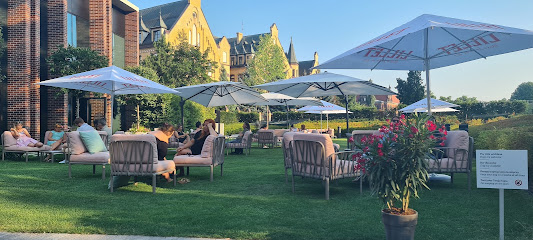
Local Phrases
-
- HelloCześć
[cheshch] - GoodbyeDo widzenia
[do veedzenia] - YesTak
[tak] - NoNie
[nye] - Please/You're welcomeProszę
[proshe] - Thank youDziękuję
[dzyen-koo-yeh] - Excuse me/SorryPrzepraszam
[pshe-pra-sham] - How are you?Jak się masz?
[yak shyeh mash] - Fine. And you?Dobrze. A ty?
[dob-zhe. a ti] - Do you speak English?Czy mówisz po angielsku?
[chi moov-ish po an-gyel-skoo] - I don't understandNie rozumiem
[nye ro-zoo-myem]
- HelloCześć
-
- I'd like to see the menu, pleaseChciałbym zobaczyć menu, proszę
[hcha-woomp zo-ba-chich meh-noo, pro-sheh] - I don't eat meatNie jem mięsa
[nye yem myen-sa] - Cheers!Na zdrowie!
[na zdrov-yeh] - I would like to pay, pleaseChciałbym zapłacić, proszę
[hcha-woomp za-pla-cheech, pro-sheh]
- I'd like to see the menu, pleaseChciałbym zobaczyć menu, proszę
-
- Help!Pomocy!
[po-mo-tsi] - Go away!Odejdź!
[o-dey-dzh] - Call the Police!Zadzwoń po policję!
[zadzvon po po-li-ts-yeh] - Call a doctor!Zadzwoń po lekarza!
[zadzvon po leh-kar-za] - I'm lostZgubiłem się
[zgoo-bee-wem shyeh] - I'm illJestem chory
[yes-tem hoh-ri]
- Help!Pomocy!
-
- I'd like to buy...Chciałbym kupić...
[hcha-woomp koo-peech] - I'm just lookingTylko się rozglądam
[til-ko shyeh rooz-gwa-dam] - How much is it?Ile to kosztuje?
[ee-leh to kosh-too-yeh] - That's too expensiveTo jest za drogie
[to yest za dro-gee-eh] - Can you lower the price?Czy można obniżyć cenę?
[chi mo-zh-na ob-nee-zh-ich che-ne]
- I'd like to buy...Chciałbym kupić...
-
- What time is it?Która godzina?
[ktoo-ra go-dzee-na] - It's one o'clockJest pierwsza
[yesst pyer-voo-sha] - Half past (10)Pół do dziesiątej
[poow do dzyes-yon-tyeh] - MorningRano
[ra-no] - AfternoonPopołudnie
[po-po-woo-dnye] - EveningWieczór
[vyech-oor] - YesterdayWczoraj
[v-cho-rye] - TodayDzisiaj
[dzyee-say] - TomorrowJutro
[yoo-tro] - 1Jeden
[ye-den] - 2Dwa
[dva] - 3Trzy
[tshi] - 4Cztery
[ch-teh-ri] - 5Pięć
[pyench] - 6Sześć
[sheshch] - 7Siedem
[shye-dem] - 8Osiem
[o-syem] - 9Dziewięć
[dzyen-vyench] - 10Dziesięć
[dzye-shyench]
- What time is it?Która godzina?
-
- Where's a/the...?Gdzie jest...?
[gd-zhye yest] - What's the address?Jaki jest adres?
[ya-kee yest a-dres] - Can you show me (on the map)?Czy możesz mi pokazać (na mapie)?
[chi mo-zhesh mi po-ka-zach (na ma-pye)] - When's the next (bus)?Kiedy będzie następny (autobus)?
[kyeh-deh byen-dzhe nas-tyep-ny (ow-to-boos)] - A ticket (to ....)Bilet (do ....)
[bee-let (do)]
- Where's a/the...?Gdzie jest...?
History of Srodmiescie
-
Wroclaw's history dates back to the 10th century, when it was established as a trading settlement. Srodmiescie, the city center, emerged as a pivotal area due to its strategic location along trade routes connecting the east and west. The establishment of the Piast dynasty marked the beginning of Wroclaw's prominence, and Srodmiescie became the administrative and cultural heart of the region.
-
During the late Middle Ages, Wroclaw became a member of the Hanseatic League, a powerful economic alliance of trading cities. Srodmiescie flourished as merchants and craftsmen settled in the area, leading to the construction of beautiful Gothic buildings and marketplaces. This period significantly influenced Wroclaw's architectural style and economic prosperity.
-
The Thirty Years' War (1618-1648) devastated much of Central Europe, including Wroclaw. Srodmiescie was heavily affected by sieges and occupation, leading to a decline in population and economic activity. After the war, reconstruction efforts shaped the urban landscape, with many Baroque influences becoming evident in the architecture of the neighborhood.
-
The 19th century saw significant industrial growth in Wroclaw, and Srodmiescie expanded rapidly. Factories and railroads were established, transforming the area into a bustling urban center. The introduction of new technologies and infrastructure attracted a diverse population, enhancing the cultural tapestry of the neighborhood.
-
World War II brought significant destruction to Wroclaw, particularly in Srodmiescie, as the city was a strategic military target. The heavy bombing campaigns resulted in the loss of many historical buildings and a drastic change in the population. After the war, Srodmiescie underwent extensive reconstruction, reflecting both the scars of war and the desire for renewal.
-
Following the fall of communism in 1989, Wroclaw, including Srodmiescie, experienced a renaissance. The neighborhood has seen revitalization through the restoration of historic buildings, the growth of cultural institutions, and the development of vibrant public spaces. This transformation has made Srodmiescie a focal point for tourism, arts, and community life in Wroclaw.
Srodmiescie Essentials
-
Srodmiescie is centrally located in Wroclaw, making it easily accessible from other neighborhoods. From Wroclaw Airport, you can take a taxi, which typically takes about 25 minutes, or use the airport bus (Line 106) that connects to the main train station. If traveling from other neighborhoods, trams and buses are frequent, with tram lines 1, 2, 4, and 10 providing direct access to Srodmiescie.
-
Srodmiescie is well-served by public transport, including trams and buses, which provide convenient access to various attractions. The Wroclaw public transport system operates on a ticketing system that is valid for both trams and buses. Bicycles can also be rented easily through the city’s bike-sharing system, Wrocław City Bike, allowing you to explore the area at your own pace. Walking is another pleasant option, as many sites are within a short distance.
-
Srodmiescie is generally a safe neighborhood for tourists. However, like any urban area, it is advisable to stay vigilant, especially in crowded areas and at night. Petty crimes, such as pickpocketing, can occur, particularly near tourist attractions. Avoid poorly lit streets after dark and be cautious around the main square during late hours.
-
In case of an emergency, dial 112 for police, fire, or medical assistance. The local hospital and police stations are situated in Srodmiescie. It's advisable to have travel insurance that covers emergencies. For minor health issues, pharmacies are readily available, and many are open late.
-
Fashion: Do wear comfortable clothing and shoes for walking; however, avoid overly casual attire when dining at upscale restaurants. Religion: Do be respectful at religious sites, covering shoulders and knees as required. Public Transport: Do validate your ticket before boarding; don’t eat or drink on public transport. Greetings: Do greet with a friendly 'Dzień dobry' (Good day) and a smile; don’t be overly loud in public spaces. Eating & Drinking: Do try local specialties such as pierogi and enjoy coffee in local cafes; don’t be surprised if service is slower than in some Western countries, as it’s common to take your time.
-
To experience Srodmiescie like a local, visit the numerous cafes and bakeries for a taste of traditional Polish pastries, such as paczki. Engage with local events and festivals, which often take place in public squares. Check out the local market halls for fresh produce and artisanal goods. For a unique experience, explore the hidden courtyards and street art scattered throughout the neighborhood.
Trending Landmarks in Srodmiescie
Nearby Cities to Srodmiescie
-
Things To Do in Opole
-
Things To Do in Hradec Králové
-
Things To Do in Poznan
-
Things To Do in Gliwice
-
Things To Do in Czestochowa
-
Things To Do in Ostrava
-
Things To Do in Olomouc
-
Things To Do in Lodz
-
Things To Do in Kutná Hora
-
Things To Do in Bielsko-Biala
-
Things To Do in Brno
-
Things To Do in Prague
-
Things To Do in Bydgoszcz
-
Things To Do in Krakow
-
Things To Do in Dresden










